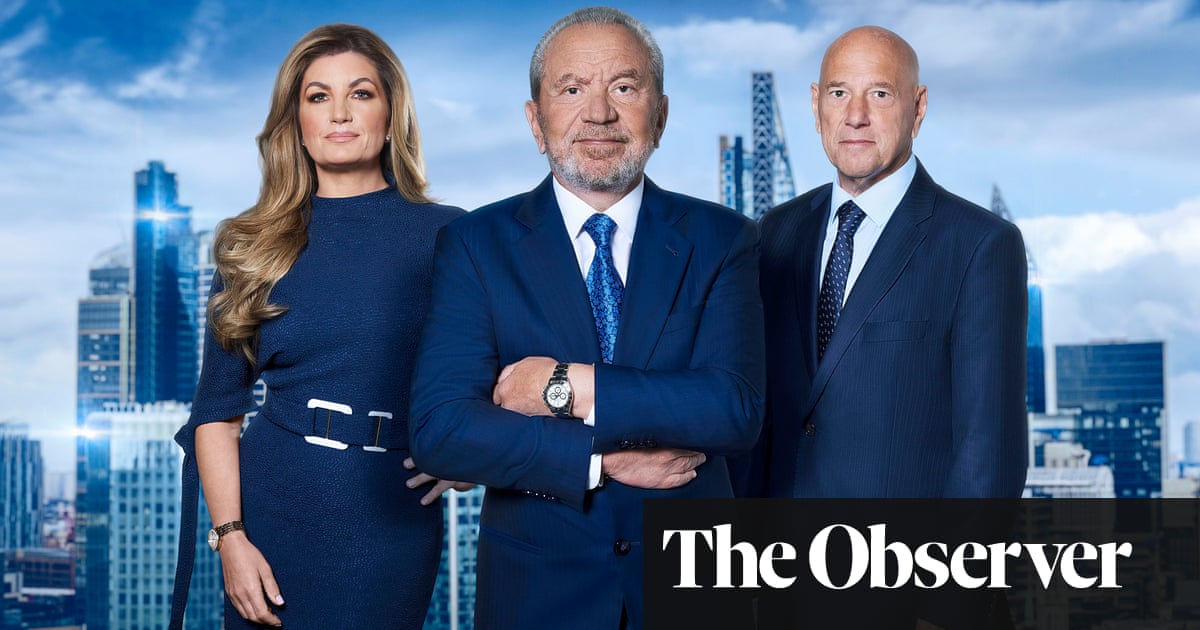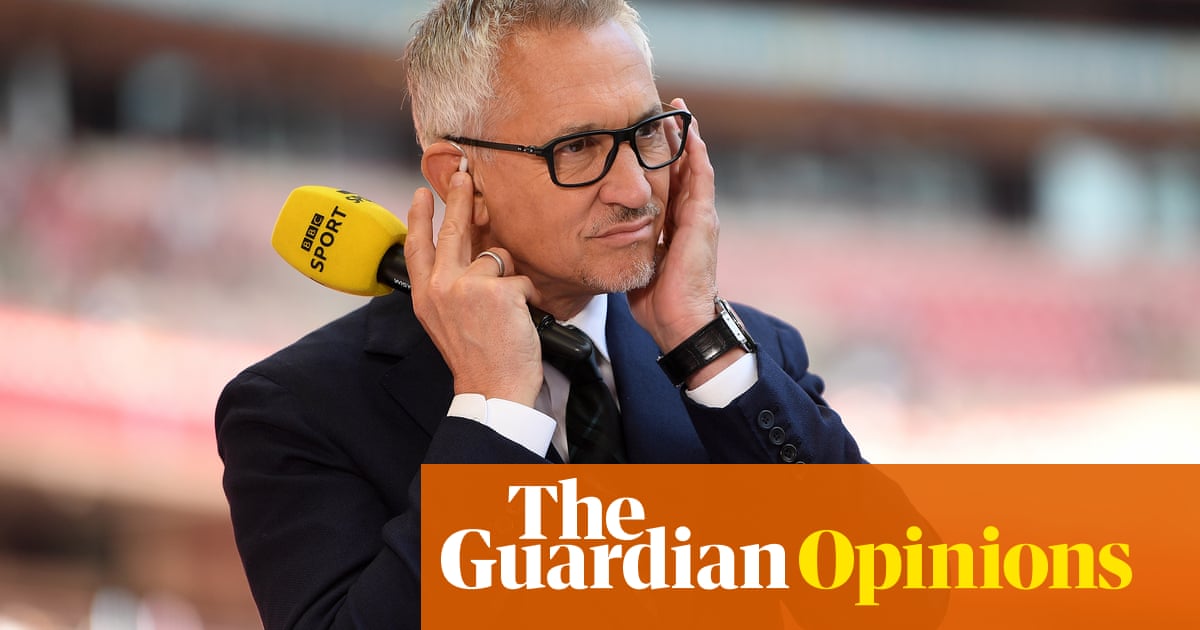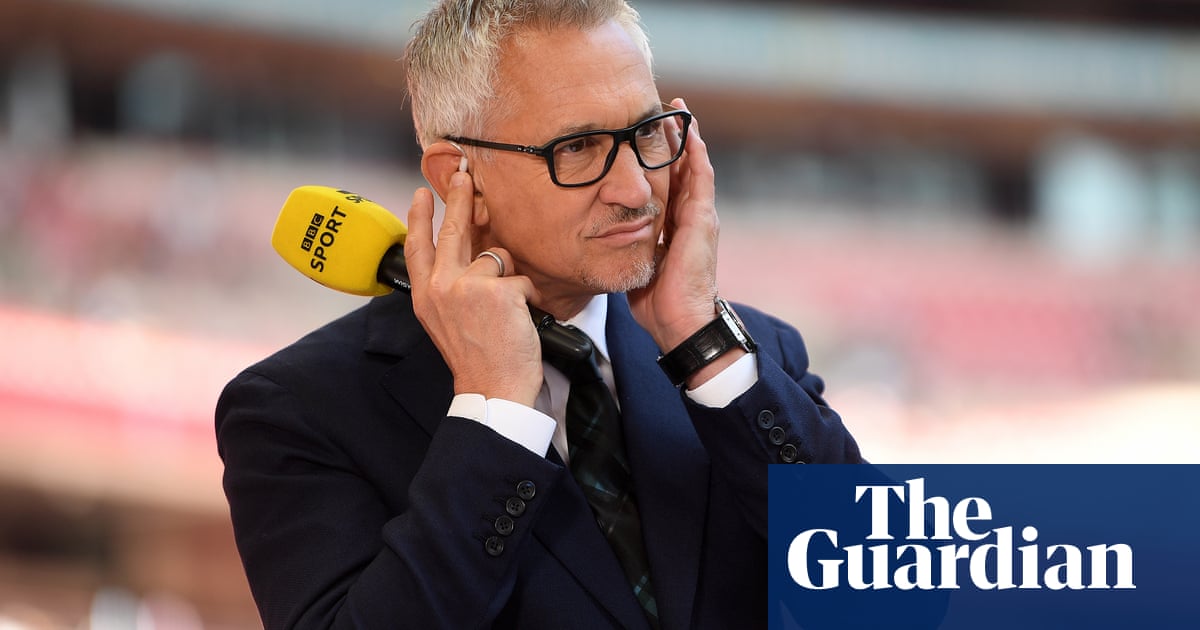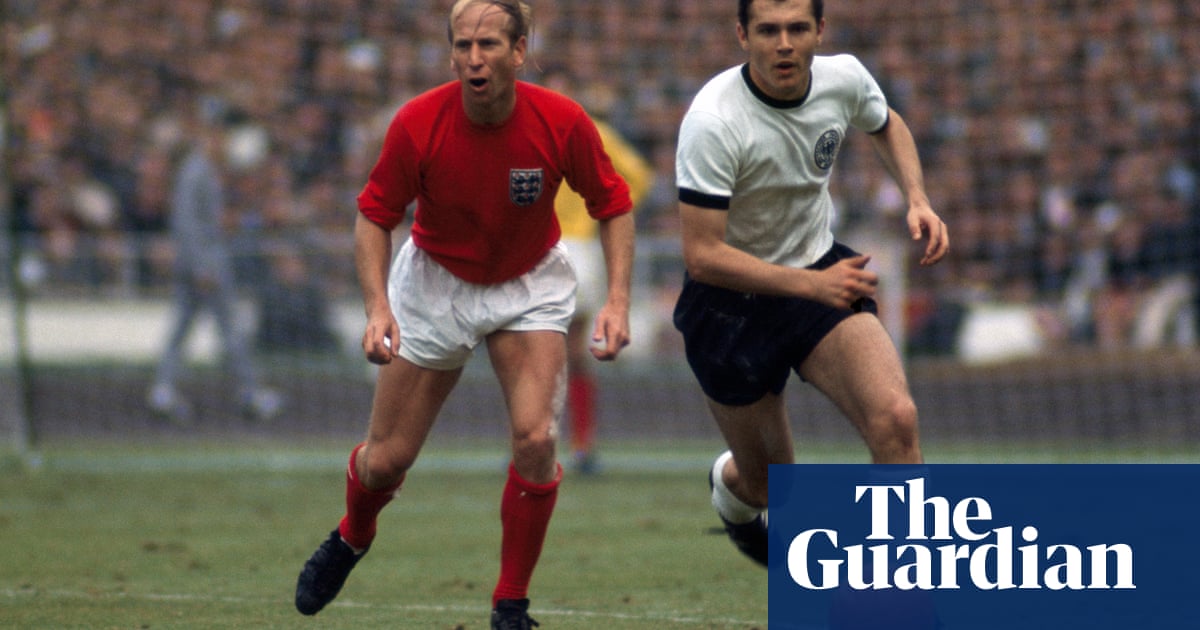
Gary Lineker’s suspension for expressing political views set off an avalanche of comparisons with other BBC stars who have not been similarly sanctioned for lacking impartiality.
Some were obvious: Lord Sugar of The Apprentice, whose 18 years of firing people have been punctuated by political outbursts, from newspaper interviews calling on people to vote Conservative to tweeting a mocked-up image of Jeremy Corbyn sitting next to Adolf Hitler.
Others were more obscure: Dame Mary Berry, the doyenne of TV cookery shows, has expressed scepticism about the government’s sugar tax in interviews and called for changes to the national curriculum to include cooking skills. They, like Lineker, were not journalists so shouldn’t be expected to adopt monastic levels of impartiality away from their jobs, political commentators argued.
Armando Iannucci, creator of the satirical series The Thick Of It, told the Observer that Tim Davie, the BBC director general, should reset the clock: “If I was Tim Davie, I’d come out of Broadcasting House and say, ‘Everything I’ve done in the last four days – forget it. I was under pressure. Pretend it didn’t happen. I’m going to have a bath for the rest of the weekend’.”
He raised the example of Michael Portillo, the former Conservative cabinet minister who has spent many of the past 14 years making shows such as Great Continental Railway Journeys, while also talking politics in newspaper columns.
“If Michael Portillo did his train programme and it was all very lovely down the Amalfi coast and he said ‘the great beauty of this train service is that it’s privatised, once again showing that it’s the free market that delivers the best sort of service to the customer’, then you think ‘he’s crossing the line here’,” Iannucci said.
Other stars who have expressed views include Nadiya Hussain, who won The Great British Bake Off when Berry was a judge, and became a popular TV chef hosting shows including Nadiya’s Family Favourites. In 2018, she posted a tweet calling Theresa May “a monster” for ordering an airstrike in Syria. She quickly deleted it and the BBC brushed off the matter saying she was “not a BBC staff member and her personal social media accounts are not connected to her work as a BBC presenter”.
Richard Osman, creator of Pointless and presenter of House of Games, said in 2019 that he believed the Tories wanted to sell off the NHS bit by bit.
Baroness Brady, an adviser on The Apprentice, is a Conservative peer and has a column in the Sun, last week writing to support the equalities minister Kemi Badenoch’s decision not to make the menopause a protected characteristic. Claude Littner, another Sugar associate, lambasted a Twitter user in 2019 as “an ignoramus! Under Labour, the money will run out”.
Other presenters, like Lineker, have attacked government policy. Martin Lewis, who has a weekly show on BBC Radio 5 Live, campaigns to change government policies, including most recently warning of an “act of national mental health harm” if energy bills were allowed to rise.
Rob Rinder, the TV judge, is co-presenting a new documentary airing soon on BBC Two called The Holy Land And Us, about families with Jewish and Palestinian heritage. He campaigns on homelessness for Shelter and last year criticised the government for its slow response to the Ukrainian refugee crisis.
Gabby Logan, the sports presenter, asked why the government wasn’t tackling racism in a Twitter exchange with then-junior minister Natalie Elphicke in 2021. Hugh Fearnley-Whittingstall is a Green party campaigner, but Hugh’s Wild West continues to run. Vanessa Feltz has a Radio 2 show and also criticised Boris Johnson for failing to ban conversion therapy while prime minister in 2021.
Comedians often express opinions – even Michael McIntyre, whose Saturday night shows are reliably politics-free, lampooned Boris Johnson, Rishi Sunak and Chris Pincher at a performance in 2022.
Iannucci said even journalists could express opinions without undermining their impartiality.
“Andrew Neil is one of the best interviewers on television, even though I know what his opinions are,” he said. “He’s still professional enough to not in the slightest let that get in the way of how he’s going to interview a politician. Lineker isn’t presenting a political programme, he’s a football presenter. There’s no way that people take Gary Lineker’s views to be representative of the BBC.”
The BBC’s approach means that even when stars take on obviously political projects there is little room for them to back up their findings with an opinion. Paul Whitehouse, the comedian, has won plaudits for his BBC Two documentary series Our Troubled Rivers, detailing the scale of sewage discharges and other pollution, but in interviews has been unable to suggest which politicians might be responsible.
It was still not enough satisfy the government, with officials at the Department for the Environment, Food and Rural Affairs despatched to publish a point-by-point rebuttal.












